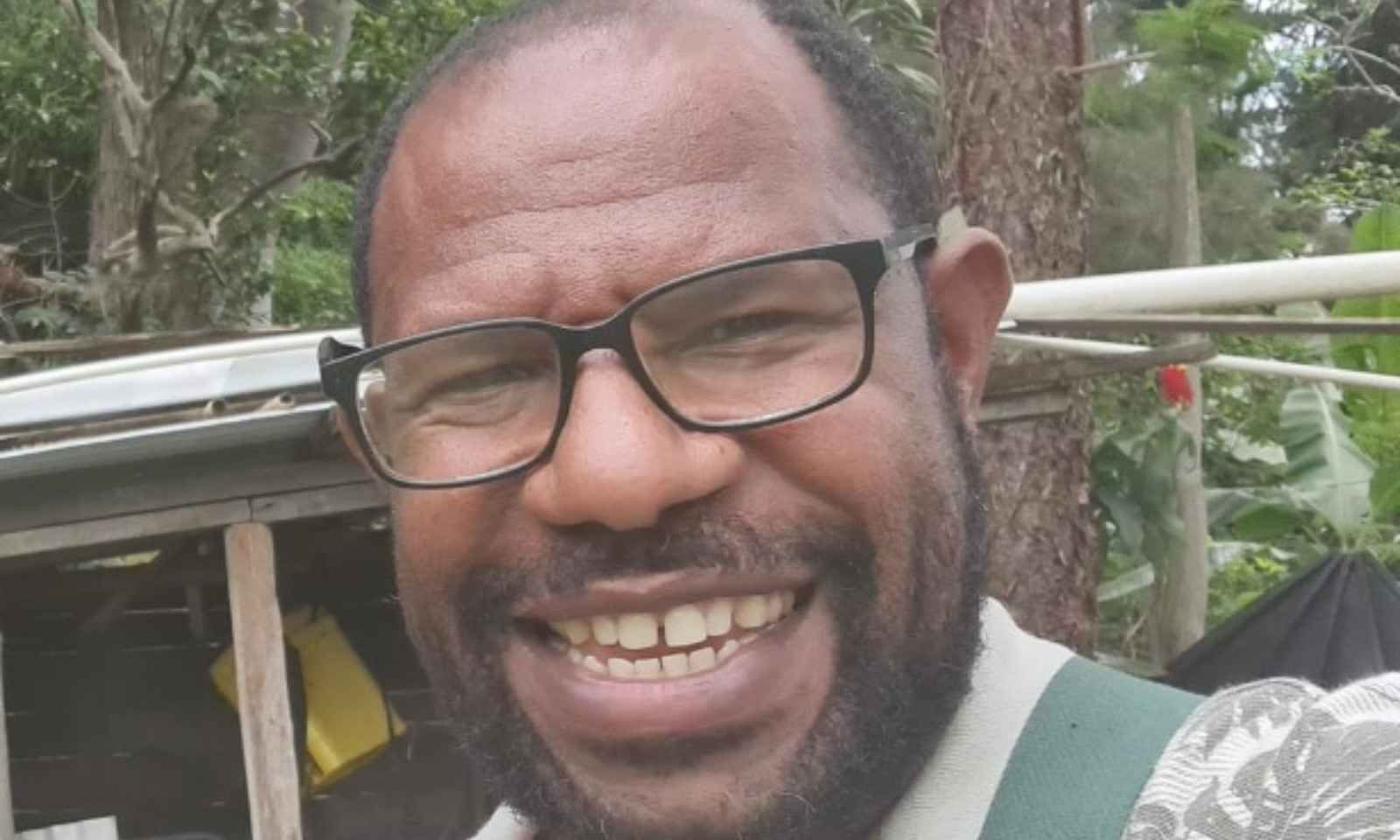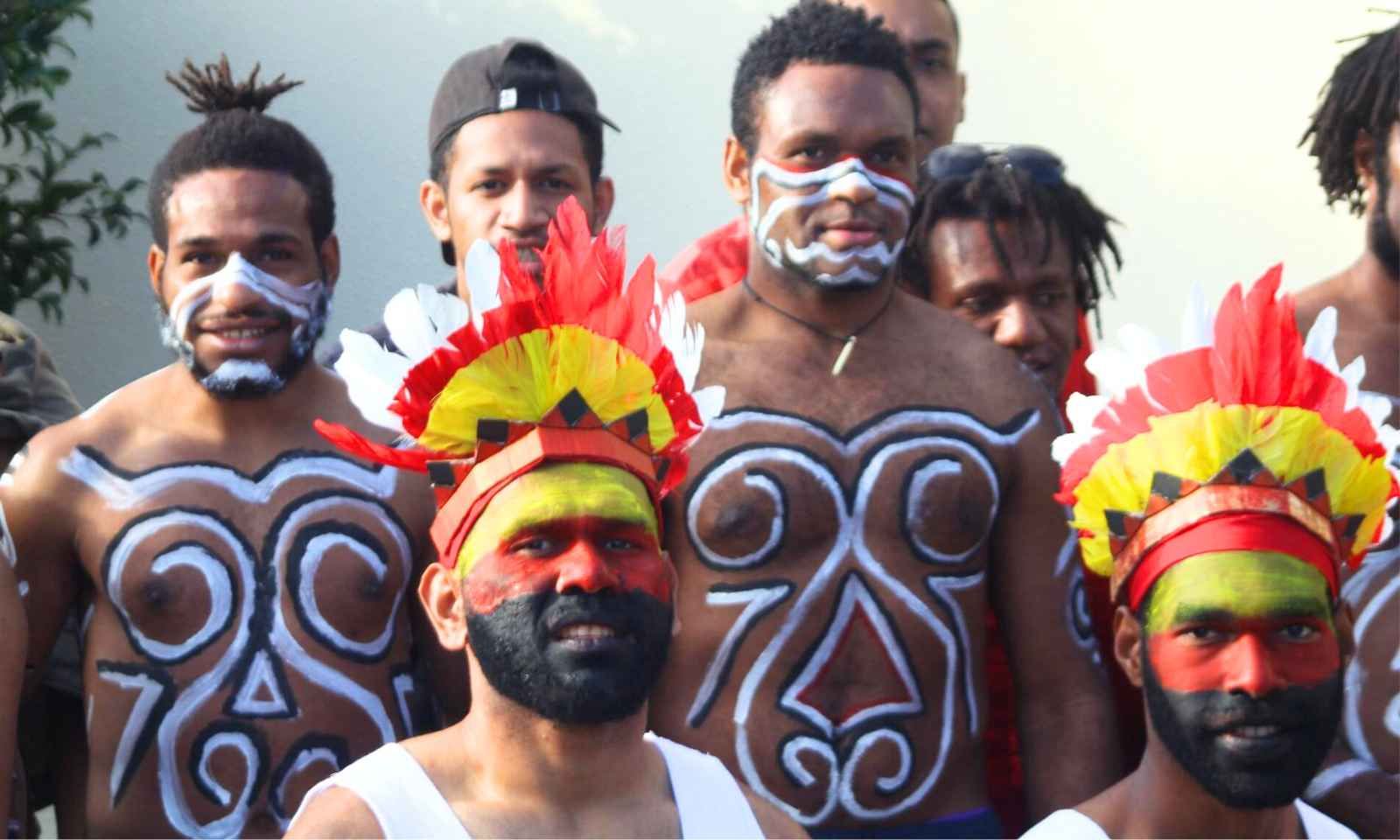

Performers at 2018 PNG Independence celebrations
Photo/Paul Titus
‘We were left out’: PNG community leader
Paul Titus shares the grassroots journey that led to this milestone achievement of preserving the language and culture.


Time for an Indigenous State of Origin? The All Stars game shows who really powers the NRL



For the first time, Papua New Guinea (PNG) is being celebrated with its own language week, focusing on Tok Pisin, or Pidgin, one of the country’s three official languages.
New Zealand’s first-ever language week began in 2010 with the Sāmoan community and over a decade later, the Ministry for Pacific Peoples has announced the introduction of a PNG Tok Pisin and Solomon Islands Pidgin Language week.
Chairman of the Palmerston North PNG Community Trust, Paul Titus, underscored this year’s theme which focuses on the preservation, revitalisation, and promotion of the language and culture.
Titus has been at the forefront of the movement to establish a PNG Pidgin Language Week.
Speaking on Pacific Mornings, he reflected on how the movement to establish a PNG Tok Pisin Language Week began with a small group of committed individuals who felt inspired to act.
“[It started] back in 2019 and post, that was Covid-19.

Paul Titus recently graduated with a masters in sustainable development goals from Massey University. Photo/Paul Titus
“So towards the very end of Covid-19, the Pacific language series was coming out and everybody was in.
“We were invited to attend Fijian language week, Sāmoan language week.
“My wife and I and also one of my friends, Hickson, he's vice chairperson of the organisation.
“We sat together and said, we are a Papua New Guinean and we are a part of the Pacific and the regional SATS team. So we started our own.
“We all prayed and we did pilot projects, PNG talk, peace, and language in 2020.
“Our trust was newly established back then. So one of the problems was that.
“So we did a pilot project and the Minister for Pacific people came along and supported, not in a larger way, but they supported our pilot projects.
“So we have done it unofficially in a very small way. The community level started it until it was formally recognised.”
Titus also highlighted the historical challenges Melanesians have faced and agreed that the community often feels left out when it comes to Pacific acknowledgements in New Zealand.
“When the Ministry for Pacific Peoples’ policies were written at a government level, all Melanesian countries like PNG, Vanuatu, and Solomon Islands were not included in the strategies.”

Traditional PNG and Solomon Islands performers at the 2018 PNG independence celebrations. Photo/Paul Titus
Paul was part of a group that formed a Melanesian Steering Committee to advocate for greater inclusion.
“Our diaspora is not as large as those of other Pacific islands, so that’s understandable, but it still felt like we were left out.”
Despite PNG being home to over 840 living languages and with a population of over 10 million, Titus is deeply concerned about the loss of Pidgin and other local dialects among younger generations in New Zealand.
“I have three kids, and I’ve seen that they go to school and learn English, but they’re not learning Pidgin. As a father, I feel obligated to teach it, because if I don’t, who will?
“Pidgin comes with culture and all of that. The likelihood of losing it is very evident in society.”
Palmerston North, where the PNG community is small but vibrant, has embraced this annual celebration with enthusiasm.
“The good thing about Palmerston North is that it’s small, and our Pacific community here is very close-knit.
“Organisations like the Ministry for Pacific Peoples and the Palmerston North City Council have been very supportive.
“People are fascinated because PNG is slightly different in terms of its culture and language compared to other Pacific countries.”
While the celebrations mark a significant achievement, Paul emphasises that this is just the beginning.
“There’s still a lot of work to be done in terms of moving forward from here,” he says. “But we’re excited and hopeful for what the future holds.”
Watch Paul Titus' full interview here